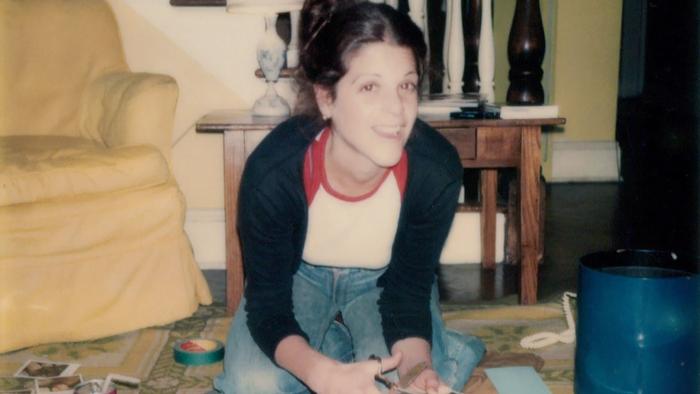By Kristy Puchko | Film | September 21, 2018

Gilda Radner was a pioneer for comedians. She was the first Not Ready For Prime Time Player cast on Saturday Night, which would become Saturday Night Live. She was instantly beloved and created wacky characters that inspired a generation of funny women, including Melissa McCarthy, Amy Poehler, and Maya Rudolph, all who appear to sing her praises in Love Gilda. But beneath the smiles, Radner was racked with self-doubt that threatened her health, her sanity, and her relationships with others. And while this bio-doc touches on all of the above, Lisa Dapolito’s directorial feature debut seems desperate to keep things light. Which feels like a disservice to the complicated woman who wanted the world to love her, but feared no one really did.
Love Gilda aims to tell the story of Radner’s life through interviews with those who knew her, those who admired her, and most importantly through her own words, utilizing videotaped performances, audio-tape interviews, and her personal diaries. Family photos reveal Radner as a plump girl, who learned to make fat jokes to beat the bullies to the punch. Her diaries reveal how she took comfort in food, and how her mother put her on medication for want of a slim daughter. But when it comes to exploring the ramifications of this in her adult life, talking heads confess they noticed she was rail-thin. Some speculate that maybe she needed help, but defensively insist she never asked for it. We’re told someone got her to go to a hospital where she got the help she needed. And then we move swiftly along with a passage from her diary about learning to love herself. As if it’s that simple.
Whether it’s discussing Radner’s eating disorder, her struggles with self-esteem, her troubled love life, or her battle with cancer, Love Gilda seems ever eager to hustle through to the good parts: her fame from SNL, her beloved one-woman show, her marriage to Gene Wilder, embracing herself as being worthy of love. The doc rushes through the rough spots as if it’s speaking ill of Radner, but really these are the bits that could be the most profound to those who follow in her footsteps.
It’s too easy to idealize our idols, imagining them as endlessly talented, confident, and happy. And when we do this, many of us inevitably hurt by comparison. We chastise ourselves for our weaknesses and failings. But the best bits of Love Gilda are not the archival footage of Roseanne Roseannadanna or Emily Litella, though they are nostalgic fun. It’s the bits where Poehler, Rudolf, McCarthy, and others read her diaries and see themselves in them. It’s the moments where Radner herself speaks about how she aims to make the world a bit better through her work, and how her work saves her too. That hits the hardest, because it’s something any of us can relate or aspire to. When you look at someone who was so flawlessly funny and wonderfully successful as Radner and see she too suffered from self-doubt, anxiety, and loneliness, we’re reminded that we’re not fuck-ups. We’re not alone. We’re just human. And all this mess—the good, the bad, the transcendent and the tragic—is all part of the deal.
Regrettably, Love Gilda offers little new information for long-time fans of the iconic comedienne. It seems most interested in rounding up famous faces to fawn over old clips, which is lovely and fluffy fun. Personally, I lament that it doesn’t explore the wildly creative, deeply vulnerable, and undeniably brave woman in a way that could truly embrace her humanity with all its flaws. But I suspect Dapolito lept away from the darkest corners of Radner’s life in hopes of paying tribute chiefly to this charismatic performer’s resilience. This virtue lives on in her work and in Gilda’s Club, the nonprofit that helps families in their battle against cancer. While it is not a comprehensive or emotionally complex doc, Love Gilda is undeniably delightful.
Love Gilda made its World Premiere at the Opening Night of the Tribeca Film Festival.